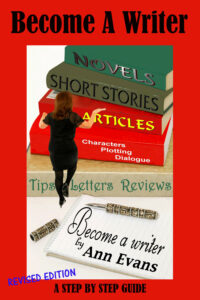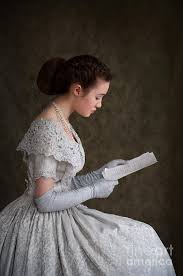Ann Evans: Hints & Tips For New Writers #17
27 October 2021
What’s the hardest part of writing a romance for you? Is it creating those two dynamic characters – strangers probably at first, who are going to collide in some manner that causes a whole heap of trouble and heartache before they eventually fall in love?
Or maybe the most difficult part is creating a unique setting that readers are going to love and be drawn willingly into. A tropical paradise perhaps, a Parisian art gallery, a windswept castle in the Outer Hebrides?
You could have all that worked out in your head already – but it’s the conflict that’s bugging you. What are these two people who are clearly perfect for one another going to disagree on? And disagree so passionately that it seems they will never get it together?
All of those factors can be troublesome, but for me, the hardest part of writing a story is finding that initial spark of an idea. That spark is the trigger to really get the brain working on characters, setting and conflict. For me, that spark needs to excite and really make me want to start researching, planning and writing (not necessarily in that order).
Sometimes that spark does ignite spontaneously, very often it’s something that happens in real life; a glimpse of something that catches your attention or some news story, or a snippet of overheard conversation. And when that happens it’s just wonderful. You have your spark of an idea and you’re off.
But then there are those other times when you can’t find anything to write about – and you need to be writing. Maybe you only have a specific amount of free time in your day; or maybe you want to enter a writing competition; or you desperately want to try and get accepted into a particular fiction magazine. Or it’s simply time to get that best seller written. But writer’s block has landed with a big, hefty thump and you can’t find a way around it.
Time then to free write. You’ve waited long enough for inspiration to strike, and it hasn’t, so start writing without it. Free writing is all about writing any old rubbish that you can throw away or delete. No one is going to see it, read it, or criticise it. But it really is a great way of beating writer’s block. There are lots of ways to free write, you could try recalling memories and experiences – maybe when emotions were running high. Jot these incidents down in note form, then maybe elaborate as the memory becomes clearer.
Think of what frightens you – emotionally rather than physically, e.g. loneliness, rejection, the revealing of a secret etc. Write about the last time you cried, or the last time you were embarrassed, or the last time you had a fit of the giggles. Then remove yourself from your scribbling and insert someone else – a character, now you can go beyond what really happened.
Make that moment of embarrassment excruciatingly embarrassing. Or if you were writing about a sad time in life, now let it have happened to someone else and bring in another character, start up some dialogue – see where it takes you. Likewise with the laughter – what if your character was giggling and another character thought they were laughing at them – what’s their reaction going to be? And that hidden secret – what’s that all about?
Another free writing ploy is to randomly pick out three words from a book, set a timer, and give yourself a precise time to write non-stop, incorporating those three words. Or make a list of emotions or moods, a mode of transport, a destination, a name. Free write without stopping to incorporate all of these, getting across the emotion or mood.
Free writing is such a handy tool and it’s not simply for helping create that spark of an idea. Free write scenes involving your characters, get them conversing, arguing; listen to what they say to one another. Free write about your protagonist’s main goal in life – their ambition or aim. Do the same with the other major characters. Let those ambitions clash and see where it leads.
Your free writing might end up in the deleted folder of your PC, or as scrunched up pages torn from a notebook, but at least you’ve been writing, those creative muscles have been busy – and I can almost guarantee that some of that free writing you’ll want to keep.
And just for fun, here’s what some well-known personalities say about writer’s block:
‘Writer’s block is a fancy term made up by whiners so they can have an excuse to drink alcohol.’ Steve Martin, American actor.
‘The scariest moment is always just before you start [writing]. After that, things can only get better.’ Stephen King.
‘Writing is easy: all you do is sit staring at a blank sheet of paper until drops of blood form on your forehead.’ Gene Fowler American journalist and author.
‘There’s no such thing as writer’s block. That was invented by people in California who couldn’t write.’ Terry Pratchett.
Happy writing everyone.
Ann

Become a Writer. A step-by-step Guide.https://www.amazon.co.uk/Become-Writer-Step-Step-Guide/dp/1652910980/




